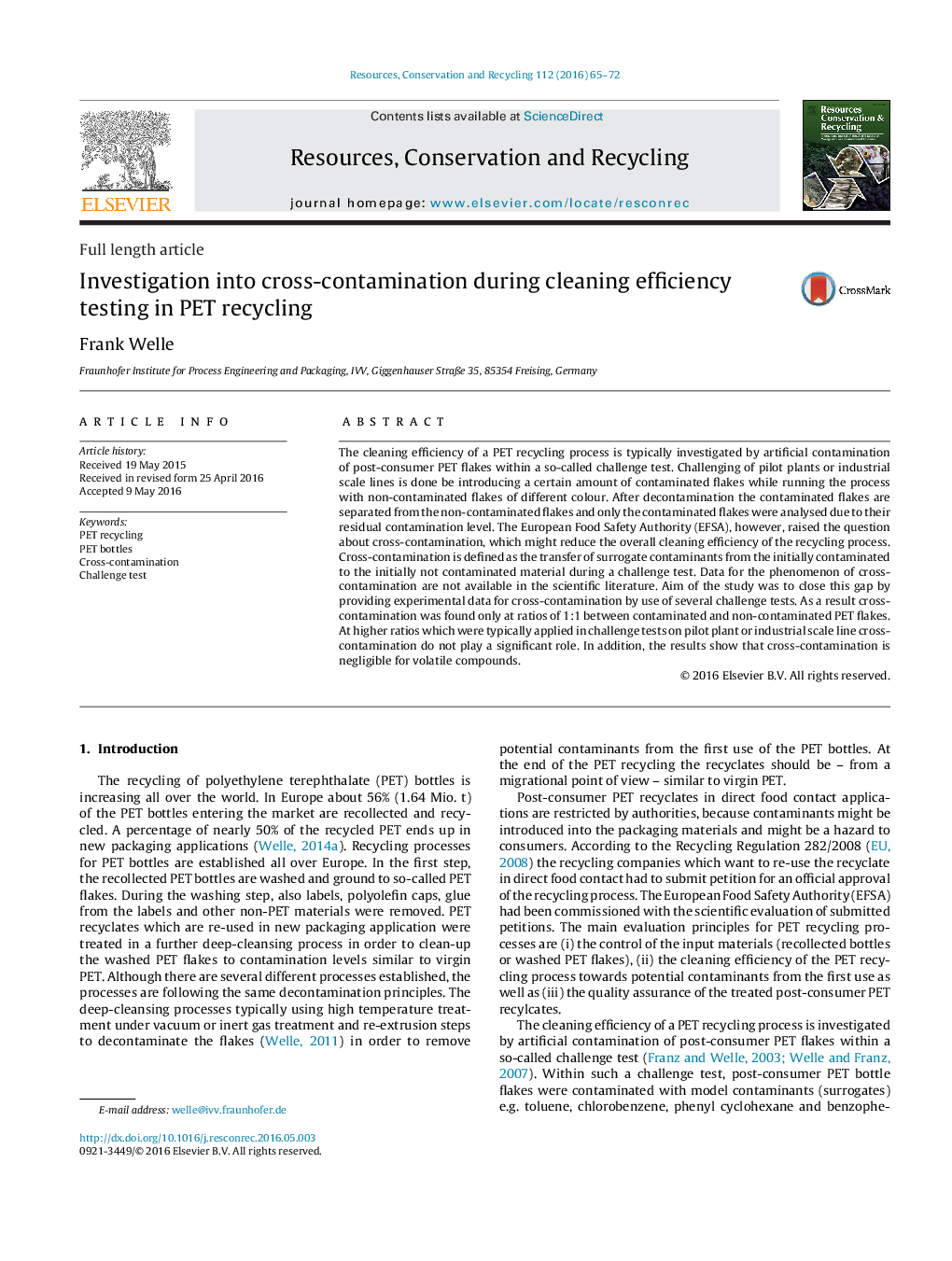| Article ID | Journal | Published Year | Pages | File Type |
|---|---|---|---|---|
| 7494828 | Resources, Conservation and Recycling | 2016 | 8 Pages |
Abstract
The cleaning efficiency of a PET recycling process is typically investigated by artificial contamination of post-consumer PET flakes within a so-called challenge test. Challenging of pilot plants or industrial scale lines is done be introducing a certain amount of contaminated flakes while running the process with non-contaminated flakes of different colour. After decontamination the contaminated flakes are separated from the non-contaminated flakes and only the contaminated flakes were analysed due to their residual contamination level. The European Food Safety Authority (EFSA), however, raised the question about cross-contamination, which might reduce the overall cleaning efficiency of the recycling process. Cross-contamination is defined as the transfer of surrogate contaminants from the initially contaminated to the initially not contaminated material during a challenge test. Data for the phenomenon of cross-contamination are not available in the scientific literature. Aim of the study was to close this gap by providing experimental data for cross-contamination by use of several challenge tests. As a result cross-contamination was found only at ratios of 1:1 between contaminated and non-contaminated PET flakes. At higher ratios which were typically applied in challenge tests on pilot plant or industrial scale line cross-contamination do not play a significant role. In addition, the results show that cross-contamination is negligible for volatile compounds.
Related Topics
Physical Sciences and Engineering
Energy
Renewable Energy, Sustainability and the Environment
Authors
Frank Welle,
